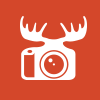Home
Tips & Tricks
Sony Tips
Sony a6400
Sony a6300
Sony a6000
Canon Tips
Canon M50 Mark II
Canon M50
Canon 6D Mark II
Canon 6D
Canon 7D Mark II
Canon 7D
Canon 90D
Canon 80D
Canon 77D
Canon 70D
Canon 60D
Canon T7 · 2000D
Canon T7i · 800D
Canon T6s · 760D
Canon T6i · 750D
Canon T6 · 1300D
Canon T5i · 700D
Canon T5 · 1200D
Canon T4i · 650D
Canon T3i · 600D
Canon T3 · 1100D
Canon T2i · 550D
Canon SL2 · 200D
Canon SL1 · 100D
Nikon Tips
Nikon D750
Nikon D500
Nikon D7500
Nikon D7200
Nikon D7100
Nikon D5600
Nikon D5500
Nikon D5300
Nikon D5200
Nikon D5100
Nikon D3500
Nikon D3400
Nikon D3300
Nikon D3200
Nikon D3100
Cheat Sheets
Sony Cheat Sheets
Sony a6300
Sony a6000
Canon Cheat Sheets
Canon M50 Mark II
Canon M50
Canon 6D Mark II
Canon 6D
Canon 7D Mark II
Canon 7D
Canon 90D
Canon 80D
Canon 77D
Canon 70D
Canon 60D
Canon T7 · 2000D
Canon T7i · 800D
Canon T6s · 760D
Canon T6i · 750D
Canon T5i · 700D
Canon T6 · 1300D
Canon T5 · 1200D
Canon T4i · 650D
Canon T3i · 600D
Canon T3 · 1100D
Canon T2i · 550D
Canon SL2 · 200D
Canon SL1 · 100D
Nikon Cheat Sheets
Nikon D750
Nikon D500
Nikon D7500
Nikon D7200
Nikon D7100
Nikon D5600
Nikon D5500
Nikon D5300
Nikon D5200
Nikon D5100
Nikon D3500
Nikon D3400
Nikon D3300
Nikon D3200
Nikon D3100

Comments
The Canon 50mm f/1.8 is an amazing little lens. I purchased mine used for less than $100. This is by far the best price/value ratio of any lens on the market. This lens is great for portraits on a crop sensor camera such as the T2i, T3i, T4i, 60D, 7D.
My go to lens is a Canon EF-S 17-55mm f/2.8 IS USM. I use it for weddings, family events, architecture and landscapes. Works only on crop sensors. I bought it slightly used for $800.
I have had a Tokina Pro DX lens on another camera body in the past, and it performed very well in addition to be built like a tank.
Having a lens with a wide aperture such as f/1.8 allows you to keep the ISO low enough that noise is not an issue. For my personal preferences, noise starts to be noticeable and annoys the hell out of me above ISO 1600 on a T3i. So I try to keep the ISO in the 100-800 range as much as possible, higher only when I really have to.
I would say the lens is more important than the body for low light success. In my opinion, you're better with a T3i and still have money left for good lenses, rather than spend all your money on a full frame body and not have enough money left afterwards to purchase good lenses.
Full frame camera bodies have a bigger sensor, and with these you can crank up the ISO much higher before noise becomes an issue. Also, full frame cameras have more dynamic range, which means your pictures can show more levels of shades of gray. And even with a full frame body, you will still need good lenses having wide apertures. If money was no object, I'd go full frame, but unfortunately photography is just one of my expensive hobbies.
I kept the best advice for the end. Specialized camera stores allow you to rent camera bodies and lenses for the week-end at super low rental prices. Especially if you're just starting in the hobby, rent a body and a few lenses and go shooting. Do this with a couple of cameras that interest you. After that test drive, you'll know more about what you like and what you don't like about each camera, and you'll discover the type of pictures you like best (portraits, landscapes, architecture, etc). This will also help you avoid purchasing lenses that in the end you end up not using.
In low light, focusing is the problem. AF chokes many times in the dark. That's why I'm trying to learn manual focus for at night. Hopefully I will recieve some help.
Tokina 11-16mm is ultrawide. For me it's too wide. Too bad their 12-24mm is not f/2.8 or I would get it instantly.
A real low light pro is the Sigma 35mm f/1.4 that alot of pro photographers use. There's a new version coming out soon, but the price tag seems to be +700 euros.
Personally I'm concedering between the Tokina 12-24mm f/4 and Sigma 17-50mm f/2.8 os now because in most parts of my shoots I can use a monopod.
You can help AF in the dark by simply using a flashlight. You can simply light your object and the AF will work. Once the focus is achieved you can turn off AF to M on the lens. This way you lock the focus and shoot pictures, but don't change your distance from the subject.
Another tip is to find a brighter/higher contrast part of your picture that is the same distance as your object. You can AF on that bright part, turn off the AF to M, recompose your picture and take the shot.
If you want a night portrait of a person in the dark, you can ask the person to turn on his mobile phone next to his face for a few seconds. You can use AF to get a focus on the bright screen and take the shot.
This way you don't have to struggle with manual focusing.